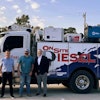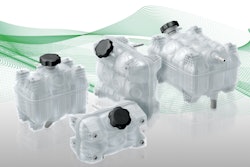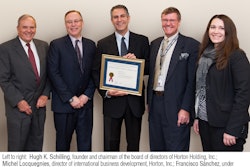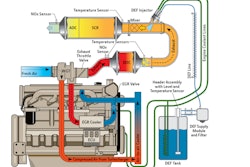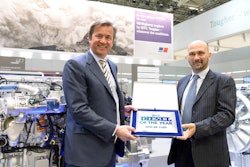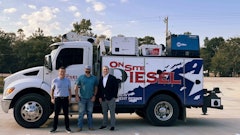The Brazilian ARLA 32 market is forecast to exceed one billion liters by 2018, according to Integer’s new Brazil Diesel Emissions & ARLA 32 Market Study: 2013 Edition.
Brazil adopted Euro-V-equivalent emissions legislation, known as PROCONVE P7, in January 2012. Euro-IV-equivalent standards were cancelled in 2009 amid concerns over fuel quality.
Most OEMs decided to use Selective Catalytic Reduction (SCR) technology for their full PROCONVE P7 medium- and heavy-duty vehicle range, with the exception of MAN Volkswagen, which offers both SCR and Exhaust Gas Recirculation (EGR)/Diesel Particulate Filter (DPF) models depending on application and engine rating.
P7 vehicle sales were particularly slow in the first half of 2012, largely as a result of customers pre-buying P5 trucks before the P7 deadline, along with P5 inventory carry over from 2011, and depressed economic conditions in 2012. Despite a slow start, Integer estimates that in its first year the market for ARLA 32 totalled 42 million liters, and in 2013 consumption is forecast to increase almost four-fold.
“We expect strong growth in the ARLA 32 market over the next few years,” says Tim Cheyne, Director of Emissions at Integer. “The FIFA World Cup next year and the Olympic Games in 2016 require huge infrastructure investment and this will drive growth in the P7 fleet. We expect ARLA 32 consumption growth to be similar to the early years of AdBlue in Europe and Diesel Exhaust Fluid (DEF) in the USA, at least two thirds of the size of each of these markets.”
Conclusions of the study will also be discussed at the upcoming 3rd Diesel Emissions Conference & ARLA 32 Forum Brazil 2013, taking place on May 14 to 16, 2013, Renaissance Hotel, Sao Paulo.



